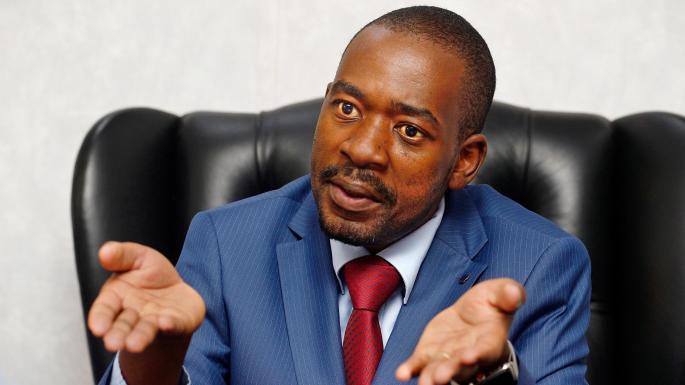The opposition leader in Zimbabwe, Nelson Chamisa has rejected claims he incited his supporters leading to a post-election violence.
Six people died when Chamisa’s supporters clashed with soldiers shortly after the July general elections.
The supporters of the Movement for Democratic Change (MDC) were agitating over the election results on August 1.
They claimed their leader had won the election and thronged the streets resulting in a security crackdown.
Police had said Mr. Chamisa was facing a possible arrest for the violence. But when he appeared before a commission of inquiry on Monday, Nelson Chamisa distanced himself from the violence.
He said his party did not cause the violence instead it was state-sponsored violence.
Chamisa said “History is replete with examples of how we were victims of violence. Violence has never been part of our DNA.
My hands are clean. My conscience is very clear…my heart is pure. My mouth has never conspired to have a life lost on the basis of political violence. The paradox in all this is the allegations are being made by those whose hands are unclean.”
The army has already rejected claims it killed those who died in the violence, despite several video footages showing how soldiers brutalized protesters.
Nelson Chamisa lost the presidential elections held on July 30 to current President Emmerson Mnangagwa.
It was the first election held in a post-Mugabe era. But following the violence Mnangagwa appointed former South African president, Kgalema Motlanthe to lead a seven-member team to investigate the incident.
The commission is expected to finish its work within three months and submit a report to the president of Zimbabwe.
Source: Africafeeds.com


